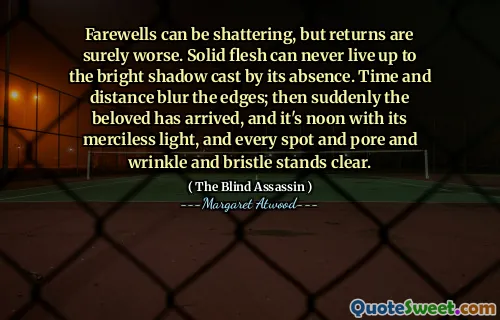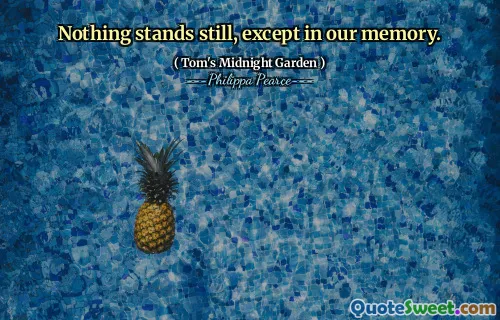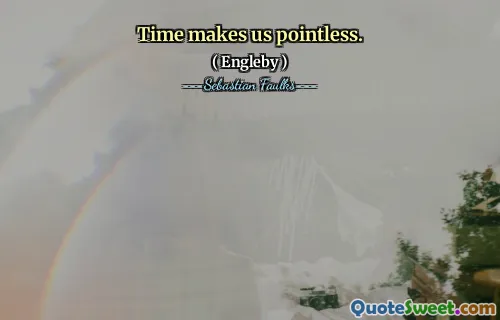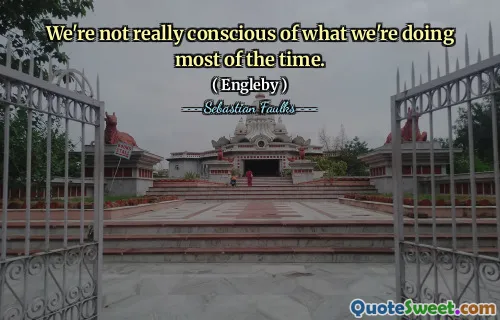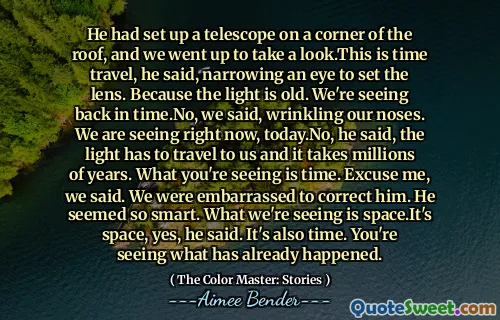Time: old cold time, old sorrow, settling down in layers like silt in a pond.
The quote reflects on the nature of time as experienced through the passage of life, indicating that it carries with it an accumulation of old grievances and memories. Just as silt gradually settles at the bottom of a pond, our past sorrows and experiences layer upon one another, creating a reservoir of pain and unresolved feelings. This imagery suggests that time does not erase memories but instead allows them to settle, influencing our present perceptions and emotions.
In Margaret Atwood's "The Blind Assassin," this metaphor captures the weight of history and the manner in which it shapes one's identity. The layers of sorrow symbolize how individuals carry their past, making it an inseparable part of who they are. The quote encapsulates a profound meditation on how time transforms our experiences into sediment, impacting our current realities and connections.
